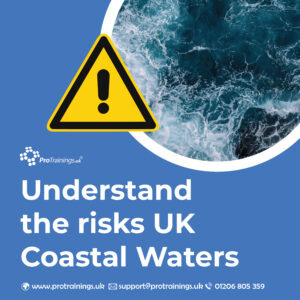 Staying Safe in UK Coastal Waters: Risks, Hazards, and Precautions
Staying Safe in UK Coastal Waters: Risks, Hazards, and Precautions
The United Kingdom boasts a captivating coastline stretching over 7000 miles, offering a plethora of opportunities for swimming, water sports, and recreational activities. However, it’s crucial to be aware of the potential risks and hazards present in these coastal waters.
Rip Currents: Understanding and Avoiding Traps
Rip currents, powerful currents flowing away from the shore, pose a significant danger to swimmers. Detecting these currents can be challenging. Stay safe by swimming only in designated areas with lifeguard supervision. If caught in a rip current, remain calm and avoid swimming against it. Instead, swim parallel to the shore until you’re out of the current, then head back to the beach.
Water Sports: Enjoyment with Caution
While water sports are popular, they come with their own set of risks. Injuries can range from cuts and abrasions due to equipment or contact with other water users, to more severe incidents like broken bones, head injuries, and spinal injuries. Keep an eye out for jellyfish, commonly found in UK coastal waters, as their stings can be painful or even life-threatening. Rinse any stung area immediately with vinegar to neutralise the stingers, and seek medical attention for severe stings or if additional symptoms arise, such as breathing difficulties or chest pain.
Hypothermia: Protecting Against the Cold
Swimming in cold coastal waters, particularly during colder months, puts you at risk of hypothermia, a condition where the body’s core temperature drops below normal. Prevent hypothermia by wearing suitable protective clothing, like a wet suit, and limiting water exposure if you begin to feel cold or shivery.
Encountering Sea Creatures: Awareness and Response
While rare, there are sea creatures in UK coastal waters that can bite or sting humans, including sharks, seals, and sea urchins. Stay vigilant and take appropriate action. If you spot a shark or seal, calmly and slowly swim back to shore. If stung by a sea urchin, remove any lodged spines from your skin and seek medical attention for severe stings.
By understanding the risks, staying informed, and taking necessary precautions, you can safely enjoy the wonders of UK coastal waters while minimising potential hazards.
